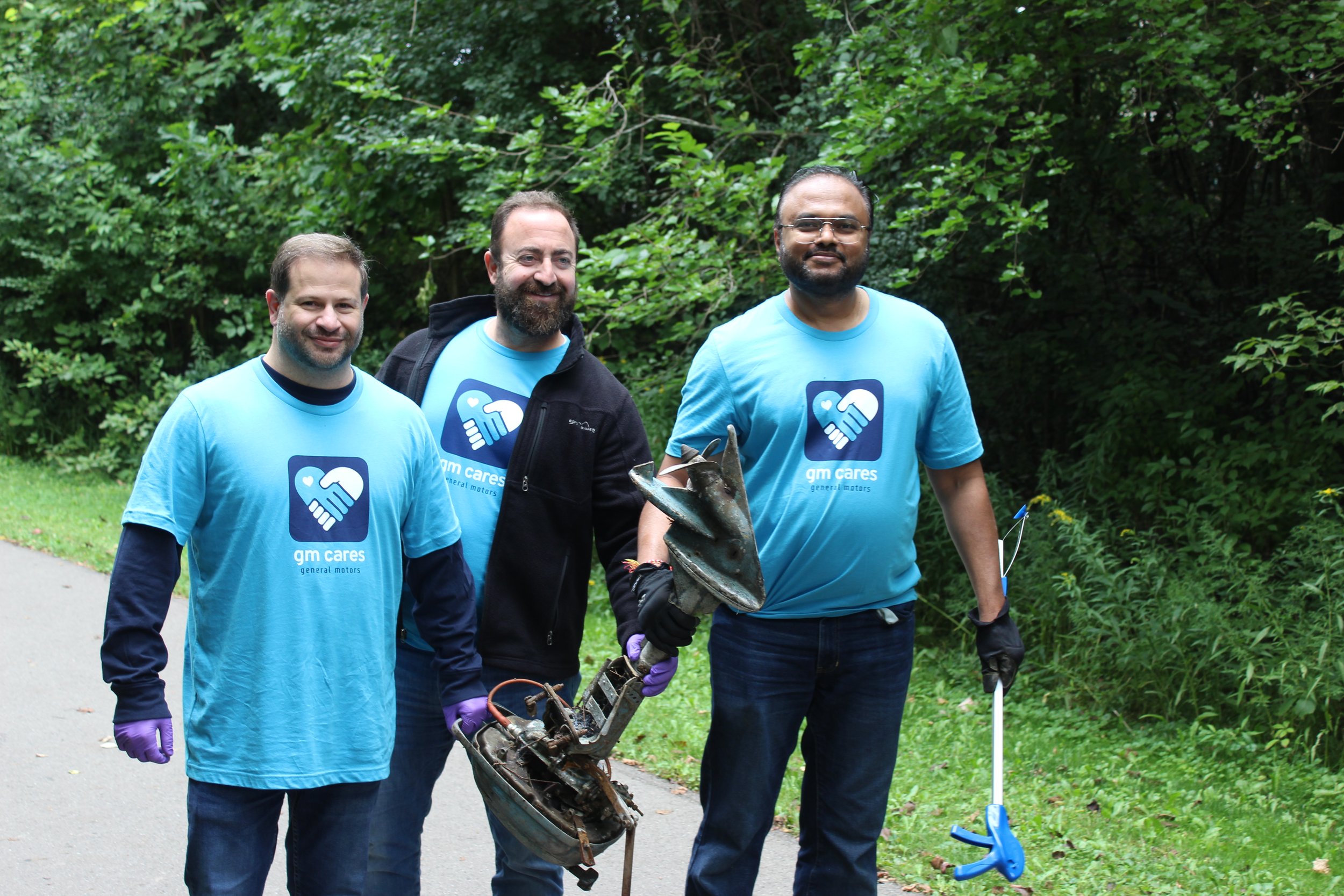2023 Weekly Clean in Action
Each year, thousands of pounds of trash, litter, and debris find their way into green spaces within the Clinton River watershed before ultimately ending up in the lakes, streams, tributaries, and rivers that flow through our communities. This discarded material can prove detrimental to water quality, wildlife, and quality of life.
Litter, especially plastic items, can break down into smaller particles over time, forming microplastics. These tiny particles can persist in the environment for a long time, contributing to pollution and potential harm to organisms throughout the food chain. Litter can release toxins and chemicals into the soil, affecting its quality and fertility. When litter ends up in water bodies, it can lead to water pollution, disrupting aquatic ecosystems and potentially harming aquatic life. CRWC’s Watershed Program Coordinator, Pronoye Kapali, emphasizes that wildlife is also impacted by litter, “Animals can mistake the trash as food or can get caught in anything from loose fishing wire to plastic bags.”
Keeping-It-Clean Volunteers pulling various small engines from the woods at a park in Sterling Heights
CRWC provides ongoing volunteer opportunities that engage residents of all ages, backgrounds, and skill levels in trash clean-ups through the Keeping-It-Clean program. CRWC Environmental Scientist, Lydia Nicholas says “When we remove trash from parks and dispose of it properly, we are removing potential contaminants and future microplastics, reducing their effects on the environment.”
Over 32 weeks in 2023, 328 individual volunteers joined CRWC for Weekly Clean, an ongoing program within Keeping-It-Clean that consists of on-land cleanups. Each week, volunteers meet at a different location within the watershed to help improve water quality by removing trash. “The types of trash we see the most often tend to be fast food wrappers, cigarette butts, and fishing-related trash like worm containers, fishing lines, old lures, and bobbers,” Lydia says. They emphasize that litter adds up quickly, “Small pieces of trash tend to persist in the environment, especially because many people have the mindset of ‘small pieces of trash don’t matter,’ so those little pieces can accumulate into a big problem. Small debris also quickly break down into even smaller pieces, creating more microplastics that are extremely hard to get rid of. Every little bit of trash matters!”
While small pieces of trash are the most common, that has not stopped Weekly Clean volunteers from pulling shopping carts, tires, rotting mattresses, and even the wooden trailer (pictured below) from green spaces along the Clinton. Occasionally, hidden gems, like the Slim Shady mix CD found in Beaver Creek, pique the interest of volunteers and CRWC staff.
CRWC volunteers collected more trash in 2023 than they did in previous years. Pronoye notes that “As the river flooded to new areas, it took up trash on land, and as the water receded, it took the trash with it, depositing it further downstream for our volunteers to find.”
In total, 9,268 lbs. of trash and debris were removed as part of the Keeping-It-Clean suite of programs in 2023. 6,500 lbs. were collected through Weekly Clean alone (almost 4,000 lbs. more than in 2022).
Lydia credits this achievement to CRWC’s volunteers, “We were able to engage more volunteers through Weekly Clean than we have in previous years, and many of those volunteers participated more than once.”
CRWC offers thanks to everyone who volunteered to get their hands dirty to improve the health of the Clinton River, its watershed, and Lake St. Clair with us this past year. CRWC looks forward to continuing to provide residents, businesses, and communities with opportunities to continue to make a difference in 2024.
Weekly Clean volunteers removing a trailer from Waldenburg Park in Macomb.
Author(s): Cole Pachucki, Pronoye Kapali, Lydia Nicholas



